Breast Reconstruction in Hungary
Search and Compare the Best Clinics and Doctors at the Lowest Prices for Breast Reconstruction in Hungary

Find the best clinics for Breast Reconstruction in Hungary
With Medijump you can browse 2 facilities offering Breast Reconstruction procedures in Hungary. The cheapest price available is $925 in Budapest. And for the cheapest price globally, prices start from $477 in India.
Breast Reconstruction in Budapest
Price: $ 925
India offers the best prices Worldwide
Price: $ 477
Premium Plastic Surgery Clinic - Budapest, located in Central Budapest, Budapest, Hungary offers patients Breast Reconstruction procedures among its total of 49 available procedures, across 9 different specialties. The cost of a Breast Reconstruction procedure starts from $7,475, whilst the national average price is approximately $4,200. All procedures and treatments are undertaken by the lead specialist at the Clinic, and they are not accredited by any recognized accreditations institutes
Elite Clinic, located in Central Budapest, Budapest, Hungary offers patients Breast Reconstruction procedures among its total of 26 available procedures, across 1 different specialties. The cost of a Breast Reconstruction procedure ranges from $925 to $1,542, whilst the national average price is approximately $4,200. There are many specialists available at the Clinic, with 6 in total, and they have multiple recognized accreditations, including: EBOPRAS - European Board of Plastic Reconstructive and Aesthetic SurgeryESPRAS - European Society of Plastic, Reconstructive and Aesthetic SurgeryÁNTSZ - National Public Health and Medical Officer ServiceMagyar Plasztikai Helyreállító és Esztétikai Sebész Társaság
- Home
- Hungary
Compare Before & After Photos of _procedure_photos.phpBreast Reconstruction
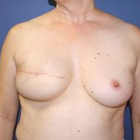
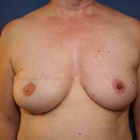
Front view
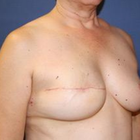
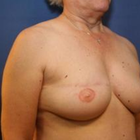
Half-side view
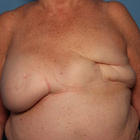
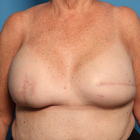
Front view
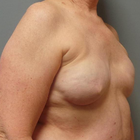
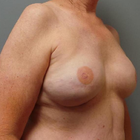
Half-side view
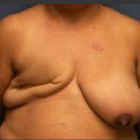
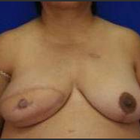
Front view
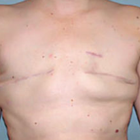
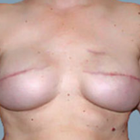
Front view
WHY US?
At Medijump, we're making medical easy. You can search, compare, discuss, and book your medical all in one place. We open the door to the best medical providers worldwide, saving you time and energy along the way, and it's all for FREE, no hidden fees, and no price markups guaranteed. So what are you waiting for?

Free

Best Price

Widest Selection

Risk-Free
What you need to know about Breast Reconstruction in Hungary
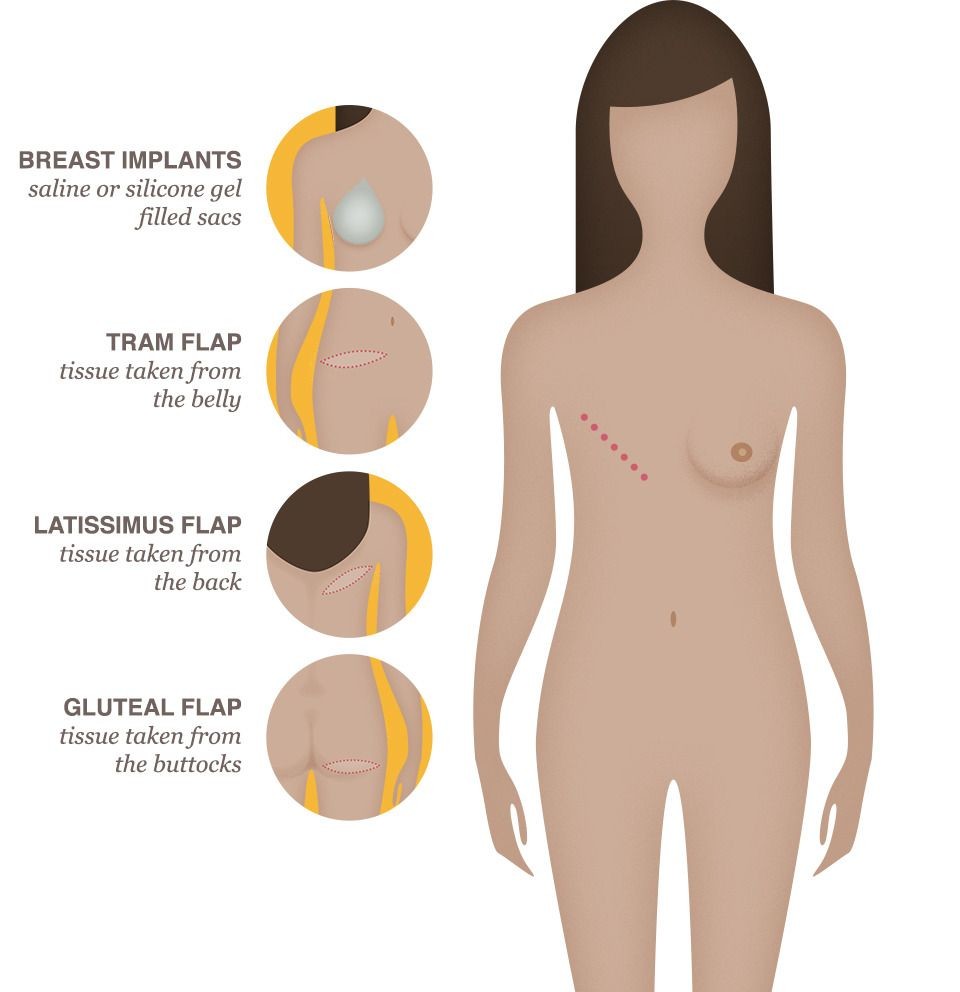
Breast reconstruction is a significant surgery undertaken to rejuvenate the physical form of a woman's chest after losing one or both breasts to cancer or another disease. In Hungary, medical centres are well-equipped with top-tier talent in plastic surgery to facilitate this intricate procedure. Every woman's journey is different, and her treatment plan is personalized, considering her unique circumstances and needs.
It's heartening to know that breast cancer treatments like chemotherapy or radiation therapy aren't impeded by reconstruction. Moreover, this surgery doesn't spike the risk of cancer coming back. Undeniably, breast reconstruction is a major surgery with inherent risks, including chances of infection, complications with wound healing, and potential dilemmas related to implants.
What is the cost of Breast Reconstruction in Hungary?
Undergoing surgery like Breast Reconstruction brings along a financial commitment. The expense varies extensively, depending on many factors like the complexity of the procedure, the medical professional performing the surgery, the hospital's facility, and the region, amongst others. Generally, the cost might range between $15,000 to $50,000, including multiple surgeries or intricate techniques within this estimate.
Thankfully, in many cases, insurance plans cover such surgical procedures, especially given mandates like the Women's Health and Cancer Rights Act of 1998 in the U.S. Still, out-of-pocket expenses associated with co-payment or deductibles can add up. It's recommended to navigate these aspects with your insurance provider and your chosen healthcare facility in Hungary.
What does a Breast Reconstruction Procedure Involve?
Breast reconstruction generally happens in stages, starting with the most complex first, which may either occur at the same time as the mastectomy or later, based on the individual’s specific health conditions or treatment plan.
Two main techniques are employed in breast reconstruction. One is the use of an implant, saline, or silicone to recreate the breast shape. Two, autologous or flap reconstruction where tissue from the patient’s body like the abdomen or thigh is relocated to recreate the breast shape. The method selected is dependent on individual factors like the patient’s health, personal choice, cancer type, and stage.
After the primary surgery and post an adequate healing period, the surgeon performs a second procedure to recreate the nipple and areola. Later, to give it a natural look, the nipple-areola complex is tattooed. Remember that although it is a common procedure, complications might arise involving reaction to anaesthesia, bleeding, infection, poor healing or the need for further interventions.
How Long Should I Stay in Hungary for a Breast Reconstruction Procedure?
Post-breast reconstruction surgery, patients typically stay in the hospital for two to five days. However, if the reconstruction was done immediately after the mastectomy, the stay could extend from three to six days.
Overall, a patient should expect to remain in Hungary for approximately two weeks post-surgery. This allows enough time for necessary follow-ups and to address any complications, if they arise. As with any major surgical procedure, do not hasten the healing process.
What's the Recovery Time for Breast Reconstruction Procedures in Hungary?
The recovery timeframe for breast reconstruction procedures in Hungary varies from patient to patient. Generally, for implant-based procedures, patients may take about four to six weeks to recuperate before they return to normal routines. For more complex autologous techniques, particularly those using abdominal tissue, patients might require six to eight weeks for recovery.
Recovering patients need to temper their activities during this period. Avoid lifting heavy objects and defer strenuous exercise until your physician gives a clear signal. Medical assistance should be promptly sought if any discomforting symptoms like chronic pain, redness or swelling surface.
What's the Success Rate of Breast Reconstruction Procedures in Hungary?
Medical success cannot just be measured in terms of complication-free postoperative progress or longevity of implants used in breast reconstruction. Patient satisfaction with their surgery, their psychological well-being following the operation, their perception of body image, and their quality of life post-surgery are equally important factors to consider. Studies indicate that between 85% to 90% of women who have undergone breast reconstruction are satisfied with the long-term results.
In Hungary, dedicated hospitals and healthcare facilities strive to offer high-quality treatment, ensuring the best possible surgical outcomes using progressive technology and experienced professionals. Still, everyone's response to surgery varies, and outcomes depend on factors such as overall health, age, body type, and compliance with surgical advice.
Are there Alternatives to Breast Reconstruction Procedures in Hungary?
Indeed, there are alternatives to breast reconstruction in Hungary. The journey of every woman is unique and how she chooses to deal with the loss of a breast, or both, is a highly personal decision. Alternatives include:
- Breast Prostheses or Forms: They are silicone forms that imitate the appearance and feel of natural breast tissue. They come in diverse sizes, shapes and colours to closely match the woman's skin tone.
- Flat Closure: In this method, the surgeons sew up the chest wound smoothly, without constructing a breast mound. This option appeals to women who choose not to have more surgeries or body implants.
- Opting not to undergo reconstruction at all, also termed as "going flat: This method exhibits the woman's choice to live comfortably with her new body shape without artificial substitutes or further surgeries. It is a fully personal decision deserving respect and support.
Each of these options has pros and cons, and the choice depends on the woman’s personal preference, health status, lifestyle, and perception of her body. Regardless of the choice, it’s important to regularly monitor breast health and engage in practices that promote overall wellness.
What Should You Expect Before and After the Breast Reconstruction Procedure?
Before the surgery, comprehensive discussions with the surgeon will take place to understand treatment objectives, outcomes, and possible complications. Preoperative tests, lifestyle modifications, and nutritional advice may form a part of the preparatory process.
Postoperative care is equally important: discomfort, swelling, and bruising are normal and subside over time. Pain management strategies will be provided to help you manage discomfort effectively. Your surgeon will provide personalised guidance on caring for your surgical site, usage of medications, and physical activities.
What sort of Aftercare is Required for Breast Reconstruction Procedures in Hungary?
The following points should be considered post-operation:
- Follow the instructions given by your doctor and take your medicines as and when prescribed.
- Consult a nutritionist for a diet plan. A healthy diet helps you recover faster.
- Do not wear a padded or underwire bra until allowed by your doctor.
- Use surgical bras in the early few days after the surgery.
- Avoid excessive unnecessary movement of your breasts.
- Do not lift heavy objects and children - it could stretch on your stitches.
- Change your bandage whenever it gets dirty. Germs can cause infection.
- Do not take a bath when the bandages are still intact. A wet bandage can also be the cause of infection.
- Abstain from sexual activity for at least 6 weeks.
- Take rest - give yourself time to recover.
How Do I Prevent Cancer from Recurring?
Preventing cancer recurrence largely revolves around a balanced, healthy lifestyle coupled with regular medical check-ups. Regular exercise, maintaining a healthy weight, and eating nutritiously can contribute to cancer prevention. Smoke cessation and limiting exposure to secondhand smoke are crucial for both prevention and postoperative recovery.
Regular breast self-examinations, as well as mammograms and follow-up visits, are critical for early detection of any recurrence. Stress management techniques like yoga, meditation, and spending time in nature can also play an essential role in overall health.
Your medical team in Hungary is there to support you, offering advice tailored to your individual health status and medical history. Remember, proactive health checks are key to maintaining overall health and preventing the recurrence of diseases like cancer.
What is the ideal time to have Breast Reconstruction surgery after a Mastectomy in Hungary?
The decision regarding when to have Breast Reconstruction following a Mastectomy in Hungary is largely based on the individual's health status, treatment plan, personal preferences, and discussions with the oncology team. Breast reconstruction can be done at the time of mastectomy (immediate reconstruction) or at a later date (delayed reconstruction). Immediate reconstruction might offer psychological benefits and less overall surgery since both procedures are done together. Yet, if additional treatments such as radiation therapy are required post-mastectomy, opting for delayed reconstruction could be advisable to avoid risks posed by radiation to the new construct.
Remember that deciding on the timing of breast reconstruction is a personal choice and should be made in consultation with your healthcare providers. They can provide specific guidance based on your health condition and treatment plan.
How Will Breast Reconstruction in Hungary Impact My Routine Mammograms and Breast Cancer Detection?
Breast reconstruction surgery may impact the way routine breast cancer screenings are conducted. After a mastectomy with or without reconstruction, women usually don't need routine screening mammograms on the treated side since all breast tissue has been removed. However, they would need routine mammograms for the untreated breasts.
If you've had reconstruction using your own body tissue, your surgeon or oncologist will guide you on whether or not you'll require mammograms on the reconstructed breast. Remember, mammograms can still be performed on reconstructed breasts, and self-breast exams should be a regular part of your health routine.
Whilst the information presented here has been accurately sourced and verified by a medical professional for its accuracy, it is still advised to consult with your doctor before pursuing a medical treatment at one of the listed medical providers
No Time?
Tell us what you're looking for and we'll reachout to the top clinics all at once
Enquire Now

Popular Procedures in Hungary
Prices Start From $497

Prices Start From $208

Prices Start From $834

Prices Start From $500

Prices Start From $93

Prices Start From $85

Recommended Medical Centers in Hungary for Breast Reconstruction

- Interpreter services
- Translation service
- Religious facilities
- Medical records transfer
- Medical travel insurance
- Health insurance coordination
- TV in the room
- Safe in the room
- Phone in the room
- Private rooms for patients available

- Interpreter services
- Translation service
- Religious facilities
- Medical records transfer
- Medical travel insurance
- Health insurance coordination
- TV in the room
- Safe in the room
- Phone in the room
- Private rooms for patients available

- Interpreter services
- Translation service
- Religious facilities
- Medical records transfer
- Medical travel insurance
- Health insurance coordination
- TV in the room
- Safe in the room
- Phone in the room
- Private rooms for patients available

- Interpreter services
- Translation service
- Religious facilities
- Medical records transfer
- Medical travel insurance
- Health insurance coordination
- TV in the room
- Safe in the room
- Phone in the room
- Private rooms for patients available

- Interpreter services
- Translation service
- Religious facilities
- Medical records transfer
- Medical travel insurance
- Health insurance coordination
- TV in the room
- Safe in the room
- Phone in the room
- Private rooms for patients available

- Interpreter services
- Translation service
- Religious facilities
- Medical records transfer
- Medical travel insurance
- Health insurance coordination
- TV in the room
- Safe in the room
- Phone in the room
- Private rooms for patients available

- Interpreter services
- Translation service
- Religious facilities
- Medical records transfer
- Medical travel insurance
- Health insurance coordination
- TV in the room
- Safe in the room
- Phone in the room
- Private rooms for patients available

- Interpreter services
- Translation service
- Religious facilities
- Medical records transfer
- Medical travel insurance
- Health insurance coordination
- TV in the room
- Safe in the room
- Phone in the room
- Private rooms for patients available

- Interpreter services
- Translation service
- Religious facilities
- Medical records transfer
- Medical travel insurance
- Health insurance coordination
- TV in the room
- Safe in the room
- Phone in the room
- Private rooms for patients available

- Interpreter services
- Translation service
- Religious facilities
- Medical records transfer
- Medical travel insurance
- Health insurance coordination
- TV in the room
- Safe in the room
- Phone in the room
- Private rooms for patients available
Breast Reconstruction in and around Hungary
About Hungary
Positioned in the core of Central Europe and completely surrounded by land, this historically enriched nation is among the world's top 15 tourist favorites. It's a hotspot teeming with UNESCO World Heritage sites, a testament to its rich past.
The country boasts eye-catching architectural marvels and relaxing thermal baths and spas, the most talked-about amongst these being the Szechenyi baths nestled in the nation's capital, Budapest. This combination of cultural heritage and relaxation opportunities lends the country a unique charm that continually lures in visitors from around the globe.
While Hungary possesses only one facility accredited by the Joint Commission International, it leans on the trusted expertise of its local accreditation board. This board, licensed by pillars of authority such as the Hungarian Ministry of Health and the State National Health Commission and Medical Service, ensures the maintenance of high healthcare standards.
Each year sees a burgeoning number of medical tourists making the journey to Hungary. Many among them travel specifically for Breast Reconstruction procedures. Dental and cosmetic treatments, in particular, draw significant attention due to Hungary’s competitive pricing, often regarded as the most economical across Europe.
Popular Parts of Hungary
With less than 10 million inhabitants sprinkled across an approximate area of 93,030 square kilometers, Hungary may appear relatively modest in size. However, within its boundaries, it hosts an impressive number of UNESCO World Heritage Sites. Alongside these acclaimed landmarks, it also boasts a multitude of exquisite attractions, making it a country that belies its physical size with its magnificently rich offerings.
- Budapest is the capital of Hungary. From beautiful boulevards, extraordinary architectures, an abundance of hot springs, to sophisticated food and an electric nightlife. Budapest has everything to satisfy everyone. Castle Hill is one of the most visited places in Budapest with beautiful buildings dating back to the 14th and 15th centuries.
- Eger is known for its castle, historic buildings, and thermal baths and also for its red wine. There are many festivals and celebrations centered around wine and remember to enjoy the wine-tasting when visiting Eger.
- Debrecen is an important city in Hungarian Protestantism. The city has many religious sites and museums. Tourists should visit the Great Church, St. Anne Cathedral, and the Deri Museum. Debrecen also has a lot of bars and nightclubs.
- Siofok is located at the southern coast of Lake Balaton. The small town also has beautiful beaches, making it one of the most popular summer holiday destinations. The town has many entertainment options, tourists can spend a lovely day on the beach next to Lake Balaton or enjoy the food in beachside bars and restaurants.
- Szeged is known as ‘The City of Sunshine’ because it has wonderful weather. The city offers beautiful parks, cultural scenes, and amazing street side cafes. Szeged has a youthful vibe as it is a university town. In the summer, there are many festivals such as the Open Air Theater festival.
Weather and Climate in Hungary
Hungary is characterized by the presence of four clearly demarcated seasons.
- Hungarian summers, spanning from June to August, are typically warm and agreeable, with average temperatures oscillating between 23 to 28°C (73 – 82°F). However, mercury levels can sometimes soar as high as 35°C (95°F). Tourists are advised to opt for lightweight clothing during this period. This season generally sees a tourism surge in Hungary.
- Both spring and autumn showcase milder, comfortable temperatures. Spring, in particular, is a splendid time to visit Hungary as the country's parks and fields burst into vibrant, full bloom.
- Winter presents a stark contrast with severely cold conditions. Average temperatures fall within -3 to -7°C (27 to 19°F), and can plummet to lows of -10°C (14°F). While rural areas may not be very visitor-friendly during this time, the more prominent cities continue to offer an enjoyable experience despite the cold.
Getting Around in Hungary
Hungary has five large airports, but international flights usually land at Ferenc Liszt International Airport. The airport is still commonly called “Ferihegy.” It offers international connections mainly to Europe, Africa, the Middle East, and North America. Several budget airlines such as Wizz Air, EasyJet, and Ryanair operate many flights from this airport. Flights to/from Schengen countries use Terminal 2A (also known as the Schengen terminal), while flights from non-Schengen countries use Terminal 2B. Another year-round international airport is Debrecen International Airport. The airport serves Wizz Air and Lufthansa along with several seasonal airlines. There aren’t many domestic flights in Hungary because traveling to one city to another usually only takes three hours by train or bus.
Visitors can get into the city from the airports by bus or taxi. If you wish to travel by taxi, make sure to use regulated taxis such as Főtaxi, the company has trained and experienced drivers to ensure passengers’ safety. The fare is 300 HUF/Km (1.03 USD). A ride to Budapest from Ferenc Liszt International Airport should cost around 7200 HUF (24.8 USD).
Buses are another easy option to get to the city center. Bus tickets are relatively cheap, single tickets are 350 HUF (1.30 USD) and can be purchased at the airport post office, BKK customer points in arrivals halls, the newsagents, and from the ticket machine at the bus stops. Drivers also sell tickets for 450 HUF (1.60 USD). It is recommended to buy daily or multi-day travel-cards and passes which are valid for an unlimited number of trips within their validity periods. The multi-day pass costs 1650 HUF (6.15 USD)
Hungary has a highly developed transport system. To travel to another city, tourists can use Intercity (IC), the fastest trains that link major cities with Budapest. Buses are a more economical way to travel inter-city. Buses are efficient. Tickets can be purchased from the bus driver. Taxis are good, but make sure to always inspect the change that taxi drivers give you. Drivers commonly give tourists outdated Romanian currency that looks similar to Hungarian currency but has no value. Hiring a car is another good option if you want to travel to many destinations, most roads are two lanes and the main roads are in good shape.
Tourist Visas in Hungary
European Union, American, and Canadian passport holders can stay in Hungary without a visa for up to 90 days, as long as the passport is valid for at least three months. Citizens of EU/EEA member and 33 countries are granted visa-free entry for a maximum period of 90 days.
Hungary is also a part of the Schengen Agreement. The Schengen Visa allows the holder to travel to any member countries using one single visa. The Schengen Visa is only issued to citizens of countries who are required to obtain a visa before entering Europe. For more information:
- Visitors to Hungary must have a valid passport and proof of onward travel.
- It is recommended to have travel insurance, as it is not required by law but can be very helpful in case of an emergency.
- Visitors to Hungary should be aware of the country's currency, the Hungarian forint (HUF). The exchange rate for the Hungarian forint fluctuates daily, but it is currently trading at around 350 HUF to the US dollar.
- Most businesses and establishments in Hungary accept credit cards and debit cards. However, it is always a good idea to have some cash on hand, especially for smaller purchases and for tipping.
Additional Information
- Local Currency: Although the Hungarian government wants to use the Euro as Hungary’s currency, the official currency is still Hungarian Forint (HUF). 1 USD is equivalent to 362.80 HUF.
- Money & Payments: ATMs are easily available within the country. Hotels, shops, and restaurants accept credit cards, especially, MasterCard, Visa, and American Express. Several taxis in Budapest also accept credit cards. Many hotels and guesthouses that give their rates in euros will accept payment with euros or forint. Tipping is not mandatory but will be appreciated.
- Local Language: The official language is Hungarian. English is widely taught in schools and universities, so many young people can speak very good English. German is almost as widely spoken as English.
- Local Culture and Religion: More than half of the population follows Christianity as it is a historically Christian country. Jewish, Buddhist, and Muslim are freely practiced and are in the minority.
- Public Holidays: Hungary celebrates Christian holy days. The country hosts many annual festivals such as Hollókő Easter Festival, Busójárás, and Balaton Festival. Note that on national and public holidays, most businesses including shops and restaurants are closed. Public transportations also run less frequently.
With its stunning landscapes, laden with history and soaked in culture, Hungary truly is a gem to behold. Brimming with a myriad of delights to cater to diverse preferences, it offers everything from captivating landscapes and historical marvels to lively metropolises teeming with life, and a wealth of culinary delights. Indeed, Hungary ensures every visitor takes away an indelible wealth of wonderful memories.
Popular Searches
- Plastic Surgery in Thailand
- Dental Implants in Thailand
- Hair Transplant in Thailand
- Breast Augmentation Thailand
- Gastric Sleeve in Thailand
- Gender Reassignment Surgery in Thailand
- Laser Hair Removal in Bangkok
- Botox in Bangkok
- Dermatology in Bangkok
- Breast Augmentation in Bangkok
- Coolsculpting in Bangkok
- Veneers in Turkey
- Hair Transplant in Turkey
- Rhinoplasty in Turkey
- Stem Cell Therapy in Mexico
- Rhinoplasty in Mexico
- Liposuction in Mexico
- Coolsculpting in Tijuana
- Rhinoplasty in Korea
- Scar Removal in Korea
- Gastric Sleeve in Turkey
- Bone Marrow Transplant in India
- Invisalign in Malaysia
- Plastic Surgery in the Dominican Republic
- Tummy Tuck in the Dominican Republic
- Plastic and Cosmetic Surgery in Poland
- Rhinoplasty in Poland
- Hair Implant in Poland
- Dental Implants in Poland
- IVF in Turkey

